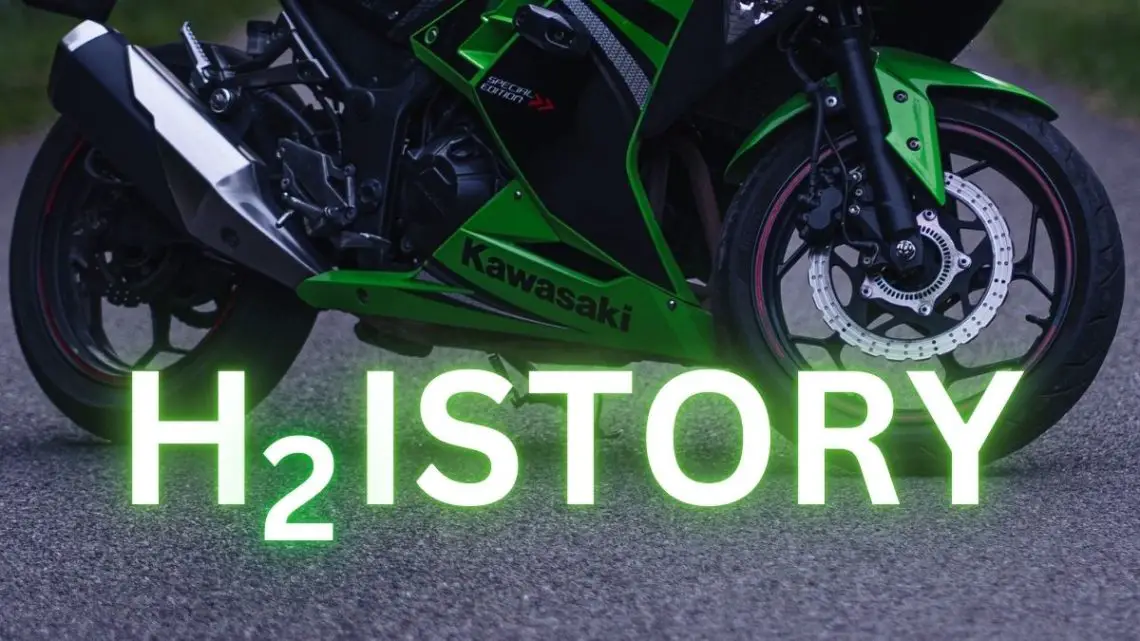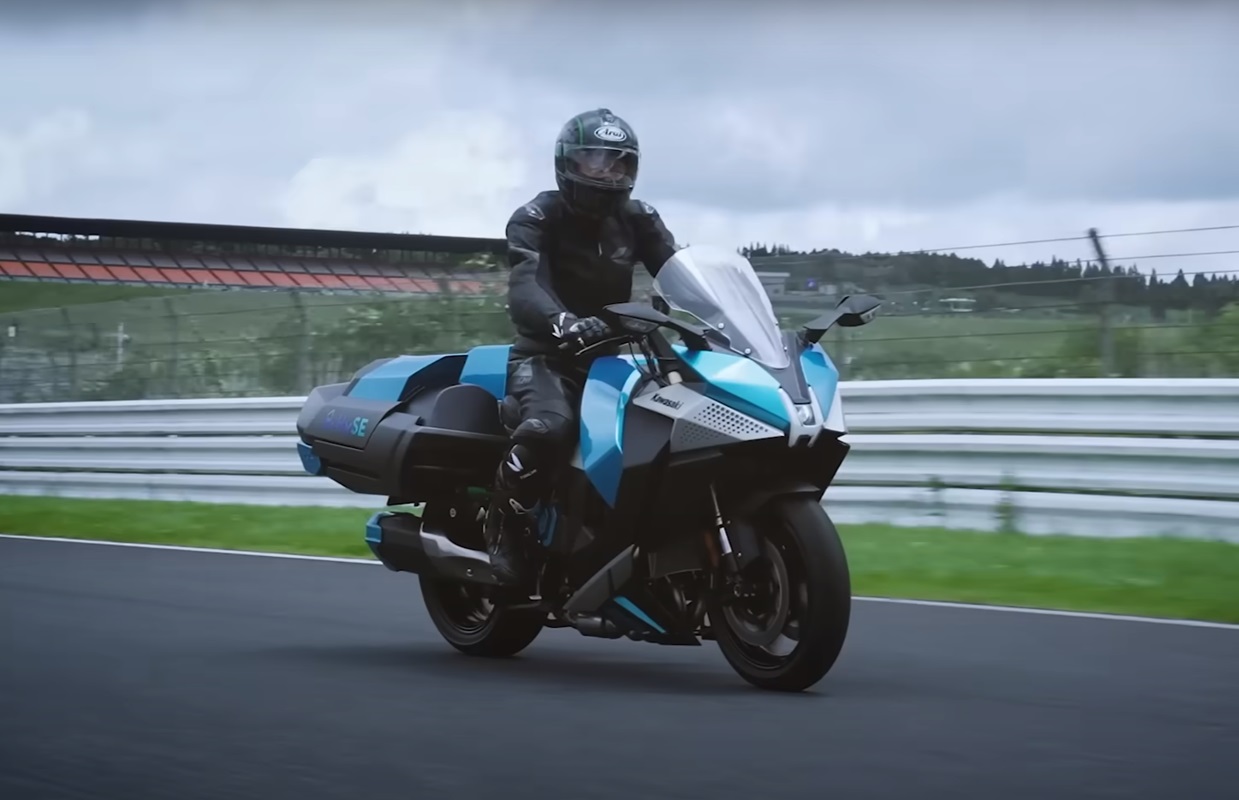
Kawasaki Makes History with ICE Hydrogen Motorcycle Demo at Suzuka Circuit
July 25, 2024On July 20, Kawasaki Motors took a pioneering step in the world of motorcycle propulsion by conducting the world’s first public demonstration of a hydrogen engine motorcycle at the Suzuka Circuit in Japan. This groundbreaking event marks a significant milestone in the development of alternative propulsion technologies for two-wheeled vehicles, setting the stage for a greener future in the automotive industry.
Hydrogen Motorcycle Development Journey
Kawasaki Motors began its ambitious project in March 2023, working behind closed doors to explore the potential of hydrogen-powered motorcycles. Early 2024 saw the commencement of rigorous test runs, leading up to the highly anticipated public demonstration at the Suzuka Circuit. The event showcased Kawasaki’s innovative approach to motorcycle engineering and its commitment to advancing sustainable technologies.
H2 ICE Technical Innovation
At the heart of this revolutionary motorcycle lies a modified version of the Ninja hydrogen engine. Originally a supercharged 998cc inline four, the engine has been expertly adapted to accept direct hydrogen injection. The transformation of the engine required significant modifications to the chassis to accommodate hydrogen fuel canisters and a dedicated hydrogen fuel supply system. Despite these changes, the motorcycle retains the rumble and pulsating sensation that riders enjoy, while emitting primarily water as a byproduct.
Kawasaki’s hydrogen engine operates similarly to traditional internal combustion engines, mixing air and hydrogen to produce combustion. The main difference lies in the type of fuel used, with hydrogen offering a cleaner alternative to gasoline. While the combustion of a small amount of engine oil does result in minimal CO2 emissions, the overall environmental impact is significantly reduced compared to conventional engines.
The chassis accommodates hydrogen fuel canisters and an onboard supply system. This setup delivers the familiar riding experience while emitting mainly water vapor. Kawasaki aims to make hydrogen ICE motorcycles a carbon-neutral option by the early 2030s and is actively involved in HySE, pushing forward hydrogen technology and research.
Kawasaki’s Commitment to Carbon Neutrality
Kawasaki Motors’ dedication to carbon neutrality is evident through its involvement in the Hydrogen Small Mobility and Engine Technology (HySE) program. Launched in May 2023, the HySE program is a collaborative effort involving major Japanese bike manufacturers such as Suzuki, Honda, Yamaha, and Toyota. The program aims to advance hydrogen technology for small mobility vehicles, including motorcycles, and to develop the necessary infrastructure and regulations to support their widespread adoption.

Kawasaki Hydrogen Motorcycle – Source: Kawasaki YouTube
The hydrogen engine motorcycle demonstrated at Suzuka is a tangible result of this collaborative research. Kawasaki Motors envisions commercial availability of hydrogen-powered motorcycles by the early 2030s, contingent on the development of hydrogen fuel supply infrastructure and the establishment of supportive legal frameworks.
HySE Program and Industry Collaboration
The HySE program represents a significant industry collaboration focused on hydrogen technology for small mobility vehicles. By pooling resources and expertise, the participating companies aim to accelerate the development of hydrogen engines, filling systems, and fuel supply systems. This collective effort is essential for overcoming the challenges associated with hydrogen propulsion, such as fuel storage, handling, and distribution.
Environmental Impact and Market Potential
Hydrogen-powered motorcycles present an appealing solution for reducing harmful emissions in the transportation sector. Hydrogen combustion produces only water vapor, making it a cleaner alternative to gasoline and diesel engines. Additionally, hydrogen can be produced from renewable energy sources, further enhancing its environmental benefits.
However, the widespread adoption of hydrogen-powered motorcycles faces significant challenges. The current lack of hydrogen refueling infrastructure poses a major barrier, as does the need for regulatory frameworks to support hydrogen fuel use. Despite these hurdles, market research indicates a growing interest in sustainable transportation options, with hydrogen-powered motorcycles offering a promising alternative to electric and traditional combustion engine bikes.
Conclusion
 Kawasaki Motors’ successful demonstration of the world’s first hydrogen ICE motorcycle marks a pivotal moment in the evolution of motorcycle propulsion technologies. The innovative design, combined with Kawasaki’s commitment to carbon neutrality and industry collaboration through the HySE program, highlights the potential of hydrogen-powered motorcycles to contribute to a greener future.
Kawasaki Motors’ successful demonstration of the world’s first hydrogen ICE motorcycle marks a pivotal moment in the evolution of motorcycle propulsion technologies. The innovative design, combined with Kawasaki’s commitment to carbon neutrality and industry collaboration through the HySE program, highlights the potential of hydrogen-powered motorcycles to contribute to a greener future.
As the automotive industry continues to explore sustainable alternatives, Kawasaki Motors stands at the forefront of this transformation, paving the way for a new era of eco-friendly transportation. With continued research and development, supported by advancements in hydrogen fuel infrastructure and regulations, the dream of hydrogen-powered motorcycles on our roads by the early 2030s is within reach.
For more information about Kawasaki’s hydrogen engine motorcycle and the HySE program, stay tuned for updates and join the conversation about the future of sustainable mobility.



 With over 15 years of reporting hydrogen news, we are your premier source for the latest updates and insights in hydrogen and renewable energy.
With over 15 years of reporting hydrogen news, we are your premier source for the latest updates and insights in hydrogen and renewable energy.
Although exciting news. This is NOT the first Hydrigen ICE motorcycle. There were hydrogen motorcycles in the early 1800’s, before the first H2ICE 4 wheel automobile of 1811, patent issued in 1809. Later, in the early 2000’s, we made an H2ICE powered Honda CR50 motorcycle. I can send you photos and videos to reference.